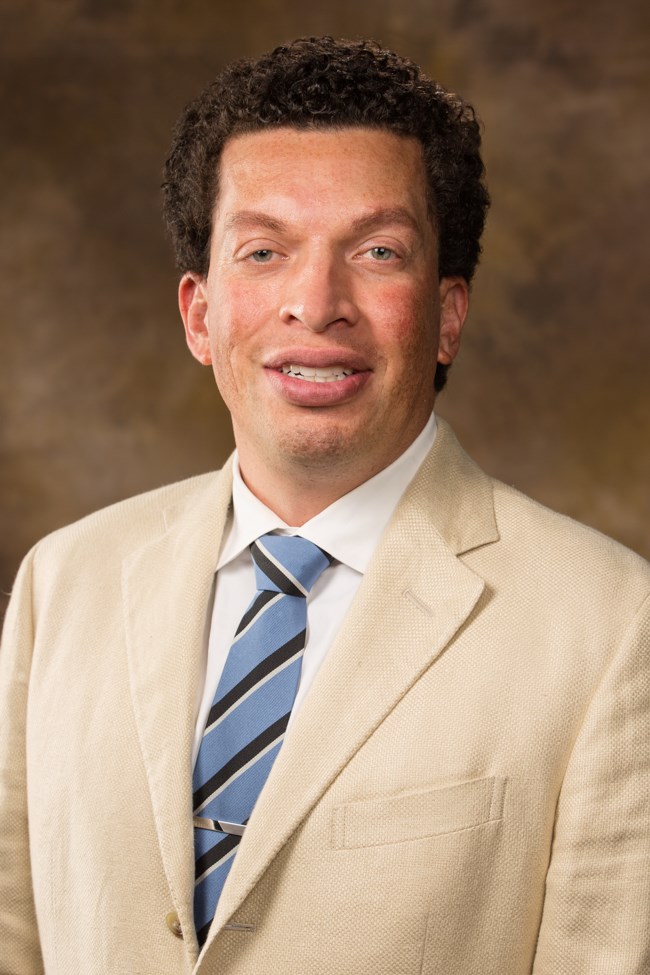Department of Civil Engineering
4190 Bell Engineering Center
Fayetteville, AR 72701
Phone: (479) 575-4954
Fax: (479) 575-7168
Environmental Engineering

Environmental Engineers focus on problems related to the quality of water, air, soils, and sediments. They work in areas of drinking water treatment distributions systems, wastewater collection and treatment systems, solid waste disposal, air pollution control, hazardous waste management, and contaminated site remediation Water resources engineers work in areas related to the quantity of water, in which aspects of hydrology and hydraulics are applied to water supply management (cities, industries, agriculture, floods, and droughts), environmental protection and restoration, and habitat protection and rehabilitation.
Undergraduates interested in pursuing careers in Environmental Engineering should consider courses related to water chemistry, reaction design, ecology, geographic information systems, and microbiology.
The University of Arkansas offers two degree options in Environmental Engineering. For students who already possess an ABET-accredited Bachelor of Science in Engineering degree, any Engineering Master's degree (Civil, Bio-Ag, Chemical, Mechanical) with a concentration in environmental related studies is a good option. For students who do not have an ABET-accredited Bachelor of Science in Engineering degree, the Master's of Science in Environmental Engineering (MSEnE) degree is the best option.
Julian Fairey, Ph.D.
Environmental Engineering with a focus on the application of physicochemical principles to the study of chemical pollutants in drinking waters and sediments.

Lourdes Batista
Doctoral Candidate

Thien Do
Doctoral Candidate
BSCE – University of Arkansas
MSCE – University of Arkansas
Improving assessment of disinfection byproduct (DBP) precursor concentrations and
development of surface-functionalized granular activated carbons (GACs) for enhanced
DBP precursor adsorption

Huong Thu Pham
Doctoral Candidate
BSCE – University of Arkansas
MSCE – University of Arkansas
Elucidating N-nitrosamine formation mechanisms

Connie Walden
Doctoral Candidate
BSCE – University of Arkansas
MSCE – University of Arkansas
Investigating Fate of Engineered Nanoparticles in Wastewater Biofilms
Removal of Endocrine Disrupters from Wastewater Streams
- Timeframe: October 2013 through September 2016
- Funded By: GARVER USA
- Collaborators: Wickramasinghe, P.I., Wen Zhang, Co-P.I., Qian, Co-P.I.
New Methods of Microalgae Quantification in Wastewater Treatment and Biofuel Production
- Timeframe: January 2015 through December 2015
- Funded By: SURF Grant, Arkansas Department of Higher Education
- Collaborators: Wen Zhang, P.I.
Reengineering Carbon Nanotubes for Enhanced Adsorption of Disinfection Byproduct Precursors
- Timeframe: May 2013 through April 2018
- Funded By: National Science Foundation
- Collaborators: Julian Fairey(PI)
Modifying Activated Carbons for Trihalomethane Precursor Removal
- Timeframe: August 2013 through October 2016
- Funded By: Tulsa Metropolitan Utility Authority and Beaver Water District
- Collaborators: Julian Fairey(PI)
Integration of Water Filtration Systems Into Emergency Shelters for Developing Countries
- Timeframe: July 2015 through June 2016
- Funded By: University of Arkansas, College of Engineering
- Collaborators: Gary Prinz(PI), Julian Fairey(Co-PI)
Polyacrylamide-based Applications for Turbidity Control at Highway Construction Sites
- Timeframe: July 2013 through December 2015
- Funded By: Arkansas State Highway and Transportation Department
- Collaborators: Julian Fairey(PI), Wen Zhang(Co-PI)
Undergraduate Courses
CVEG 3213 Hydraulics (Sp, Fa)
Study of incompressible fluids. Topics include fluid properties, fluid statics, continuity, energy and hydraulic gradients, fundamentals of flow in pipes and open channels. Hardy Cross analyses, measurement of flow of incompressible fluids, hydraulic similitude and dimensional analysis. Lecture 2 hours, laboratory 3 hours per week.- Corequisite: Lab component.
- Prerequisite: MEEG 2003.
CVEG 3223 Hydrology (Sp, Fa)
Use of ground water and surface water. Flood routing procedures in storage reservoirs and channels. Hydrologic planning including storage reservoir design, frequency duration analysis, and related techniques.- Prerequisite: CVEG 2053 or BENG 2612; and CVEG 3213 or MEEG 3503.
CVEG 3243 Environmental Engineering (Sp, Fa)
Introduction to theories and fundamentals of physical, chemical, and biological processes with emphasis on water supply and wastewater collection, transportation, and treatment. Lecture 2 hours, laboratory 3 hours per week.- Corequisite: Lab component.
- Prerequisite: MATH 3404 and CHEM 1123.
CVEG 4243 Environmental Engineering Design (Sp, Fa)
Application of physical, biological, and chemical operations and processes to the design of water supply and wastewater treatment systems.- Prerequisite: CVEG 3243.
CVEG 4811 Environmental Design Project (Sp)
Comprehensive engineering design project primarily related to environmental issues.- Corequisite: CVEG 4243
CVEG 492VH Honors Studies in Environmental Engineering (Irregular) (1-6)
The study of advanced topics in the environmental engineering field. May include participation in environmental engineering courses normally available only to graduate students. Course may be repeated for up to 6 hours total credit with approval of the CVEG honors advisor.- Prerequisite: CVEG 3243.
CVEG 4263 Environmental Regulations and Permits (Fa)
Topics include federal and state environmental regulations, the permitting process, permit requirements and related issues.
- Prerequisite: CVEG 3243 and senior standing.
Graduate Courses
CVEG 5234 Water and Wastewater Analysis (Irregular)
Application of chemistry to environmental engineering. Quantitative determinations of constituents in water and wastewater. Principles of bacteriological laboratory techniques. Lecture 3 hours, laboratory 3 hours per week.- Prerequisite: CVEG 3243.
CVEG 5243 Groundwater Hydrology (Irregular)
Detailed analysis of groundwater movement, well hydraulics, groundwater pollution and artificial recharge. Surface and subsurface investigations of groundwater and groundwater management, saline intrusion and groundwater modeling will be addressed.- Prerequisite: CVEG 3223.
CVEG 5253 Microbiology for Environmental Engineers (Irregular)
Fundamental and applied aspects of microbiology and biochemistry relating to water quality control, wastewater treatment, and stream pollution.- Prerequisite: CVEG 3243.
CVEG 5263 Stream Pollution Analysis (Irregular)
The determination and application of deoxygenation and reaeration rates to stream pollution analysis. A study of biological degradation rates for municipal and industrial wastes.- Prerequisite: CVEG 3243.
CVEG 5273 Open Channel Flow (Irregular)
Open Channel Flow includes advanced open channel hydraulics, flow measurement techniques, a hydrology review, culvert and storm drainage facility design, natural channel classification (fluvial geomorphology) and rehabilitation, computer methods and environmental issues.- Prerequisite: CVEG 3213 and CVEG 3223.
CVEG 5293 Water Treatment & Distribution System Design (Irregular)
Design of industrial and municipal water treatment plants. Discussion of raw and treated water requirements for the several uses. Distribution system analysis and design including distribution storage and pumping.- Prerequisite: CVEG 3243.
CVEG 5734 Advanced Wastewater Process Design and Analysis (Irregular)
Application of advanced techniques for the analysis of wastewater treatment facilities. Physical, chemical and biological processes for removing suspended solids, organics, nitrogen, and phosphorus. Laboratory treatability studies will be used to develop design relationships. Lecture 3 hours, laboratory 3 hours per week.- Prerequisite: CVEG 5234 and CVEG 4243

